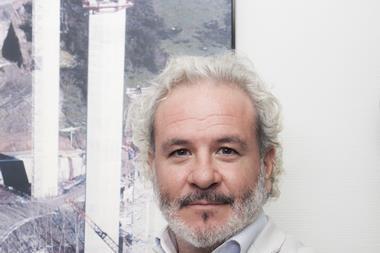Cass Business School makes the case that boardrooms should be filled with experts and not merely people who are just good managers
Do we take risks when we hire leaders with minimal core-business knowledge?
I once appeared on Start the Week on BBC Radio 4 to discuss my book Socrates in the Boardroom. The book makes an empirical case for putting top scholars into senior leadership positions in research universities, instead of those who have only proved themselves as good managers. I was amazed at the response I received from individuals in banking, the media, engineers, surgeons, social workers, and even a former Formula 1 racing driver. Their stories were very similar. The bankers wrote that the financial crisis had much to do with the role of non-experts in major CEO positions. The surgeons complained that managers were instituting systems that suited other managers but not the doctors or patients. Social workers blamed the sad stories that emerged around the country on systems that were overly bureaucratic. As I write this now, there is a legal battle ensuing in Australia following the tragic death of an adolescent in a psychiatric unit. The coroner in the case has recommended that all mental health teams should have clinical oversight from a consultant psychiatrist, not merely a manager.
If patient safety requires expert leaders, then why not all leadership?
Consulting firms McKinsey and PwC are often responsible for introducing new trends in management practices, so what do they do? The McKinsey website tells us that Dominic Barton, who is the global managing director, has been with the firm since 1986. Barton is no new boy and undoubtedly he has excelled in his consulting profession to stay there that long. Might we also expect Ian Powell, chairman and senior partner at PwC, to be a decent chartered accountant? What about high-tech firms – should they be led by technical experts or managers who are generalists? It is interesting to look at who sits on the Google board. You will find that each person holds at least one computer science or engineering undergraduate degree, Masters or PhD; and there are two university presidents – Stanford’s John Hennessy and the former Princeton president Shirley Tilghman, both of whom are eminent scholars. Might former HBOS CEO Andy Hornby have fared less badly if he had spent more years in actual banking rather than in Asda supermarkets?
My research shows that genuine expertise matters. Leaders should be experts in the core business of their organisations. Being a capable general manager alone is not sufficient. This topic is hotly debated. There is recent evidence that major firms have moved away from hiring CEOs with technical expertise, towards hiring leaders who are generalists. Fifty years ago, as society switched from family-owned businesses and employment through entitlement, to a more meritocratic and efficient approach to enterprise, good management was crucial — as it still is today. But the pendulum may have swung too far towards general management functions and away from core business functions. We know, through the work of Nick Bloom and John Van Reenen that good management practices have a positive impact on organisational performance. This has been found in many settings. However, the authors also show that in hospitals, for example, performance improved when clinicians were also the managers. In other words, management should not be separated from clinical functions.
We all admire German cars. It is very likely that these firms perform well because their engineers move from the shop floor into the boardroom, thus taking a deep knowledge of the core business with them into the more strategic areas of the firm.
A more common setting for debates of this kind is sport – does it matter that the coach of my beloved football team was a good player? It does, in case you are interested. The managers of the 92 clubs in the English football league have an average of 16 years playing in senior clubs. Alex Ferguson, arguably Britain’s best football manager, who played for both club and country, had an average scoring success of one goal every second game in his professional career (and don’t MUFC mourn his loss).
Although we admire entrepreneurs, scientists, engineers, artists, and others with ideas, we typically assume that they are no good at running an organisation. I have found these assumptions to be wrong. For example, in professional basketball, we found that teams that win the most are those led by former star-players. Most hospitals in the US and the UK are led by managers with no medical training. Yet I found that the most outstanding hospitals in the US were led by CEOs who are doctors. Similarly, the most successful universities in the world are led by presidents who are also highly respected academics.
A recent study, with co-author Ganna Pogrebna from Warwick University, looks at one of the world’s most competitive high-technology sectors – Formula 1 competition. Our study collects and analyses 60 years of F1 data from which each organisation’s performance can be measured objectively. We find that the most successful team leaders are more likely to have started their careers as drivers or mechanics compared with professional managers or engineers with degrees. But we find the most notable association between driving and the later success as a leader. Within the sub-sample of former drivers, those with the longest driving careers go on to be the most successful leaders. Prominent examples include former top drivers like Jean Todt of Ferrari and comparative newcomers like Red Bull’s leader, ex-driver Christian Horner.
So why might experts make better leaders?
We believe that hands-on experts have a deep intuition and wisdom that helps inform their decision-making. The understanding expert leaders have of the core business gives them better strategic vision, helping them to identify more business opportunities and challenges – risk-taking is also likely to be better calculated. Having been on the shop-floor, experts know how to create the right work environment and command greater respect having proved they can ‘walk the walk’. The long period of training or on-the-job experience required of experts may endow them with a longer view, both to success and to income and profit generation. And as leaders in a specific field, experts model excellence, inspiring the people who work for them to go above and beyond in their own quest for quality. In short, expert leaders may be more likely to bring out the best in their core-workers.
Arguably, hiring the best people is central to the success of any organisation. Experts may hire better people. If it is a leader’s job to set the standards in an organisation, one might assume that the standard bearer should first meet the standard. Who gets hired as leader may send a signal to the outside world about both the credibility of the head (someone who has walked-the-walk) and an organisation’s strategy. Hiring an expert leader may also signal credibility to a wider audience (media, shareholders, the market, etc).
Let’s be clear: to be an expert leader one also has to be an expert manager. But we’re accustomed to seeing Fortune 500 firms choosing charismatic general managers for senior leadership positions over core-business experts. We’re also used to seeing CEOs flit back and forth across industries, becoming jacks-of-all-trades, masters of none. Might our organisations be paying the price? If we want to boost our economies and our companies through innovation and entrepreneurship, and if we want to solve major global problems like climate change, I believe we need more specialists and fewer generalists running organisations — real experts, not managers.
Amanda H Goodall is a senior lecturer at Cass Business School
Lack of relevant experience can be to blame for catastrophic failure
Companies that hire leaders with minimal core-business knowledge are taking risks. In fact, Airmic’s Roads to Ruin report found that one of the main factors of catastrophic failure was board level risk blindness often caused by lack of relevant experience.
A chief executive does not always have to have expertise in the business they run. What is critical is for strategy and operations to be connected. As our research shows, in an event of catastrophic failure there has often been a disconnection between strategy and operations. If the chief executive is not an expert in the field of their business, they must have a governance structure enabling them to be connected to the operations (eg Richard Branson is not a lifetime pilot, but he put together a team who knew how to run an airline).
Similarly, in risk and insurance, more and more chief executives are from a finance background, as opposed to operations. But that doesn’t mean the business will be put at risk, so long as the risk function is well connected at a governance level with the board, non-executives are giving good advice and are challenging the chief executives where necessary, and the organisational structure is enabling an information flow essential to maintain the connectivity of the board.
The common denominator in most cases of catastrophic failure is less likely to be the chief executive‘s background; but how the business fits together, its governance structure and culture.
John Hurrell, chief executive, Airmic




















No comments yet